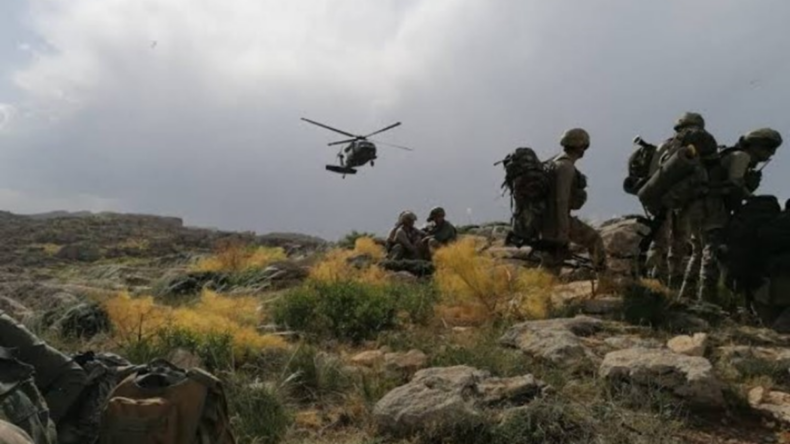President of Turkey Recep Tayyip Erdogan has declared that Abu al-Hussein al-Husseini al-Qurashi, a suspected ISIL (ISIS) group commander, has been assassinated by Turkish intelligence personnel.
Erdogan said that before beginning their operation, Turkish intelligence had been keeping a close eye on the purported leader of the hardline organization.
According to local and security sources in Syria, the raid occurred close to the northern Syrian town of Jinderes, which is governed by rebel organizations with support from Turkey and was among the most severely impacted by the earthquake that struck Turkey and Syria on February 6.

No Confirmation From ISIS
There was no statement released by ISIL (ISIS). A rebel group with security presence in the region, the Syrian National Army, did not immediately respond to a request for comment.
Turkish intelligence operatives and local military police in Jindires, supported by Turkey, have blocked off a zone, according to an AFP news agency journalist in northern Syria.
Who was Al-Qurashi?
After the death of his predecessor in November 2022, Al-Qurashi assumed leadership of ISIL (ISIS).
In 2014, the ISIL (ISIS) organization seized large portions of Iraq and Syria, and at that time, Abu Bakr al-Baghdadi, the group’s leader, proclaimed an Islamic caliphate over the region, which was home to millions of people.

ISIS stronghold crumbled?
But following operations by US-backed forces in Syria and Iraq, as well as Syrian forces supported by Iran, Russia, and various paramilitaries, the group lost control of the area.
Most of its surviving militants are currently concealed in isolated parts of Syria and Iraq.
In the first week of April, US forces claimed to have killed Khalid Aydd Ahmad al-Jabouri, a top ISIS member in charge of organizing attacks in Europe.
ISIS has recently been responsible for a number of terrorist incidents in Europe, mostly between 2014 and 2017. A few of the significant assaults are the Paris attacks of November 2015, the bombings in Brussels in March 2016, the truck attack in Nice in July 2016, the truck attack in Berlin in December 2016, and the Manchester Arena bombing in May 2017.
The threat of terrorism in Europe and the capacity of security services to stop such attacks have been greatly heightened by these assaults and others like them.
ISIS leader Abu Bakr al-Baghdadi passed away in a US military operation in northwest Syria in October 2019. Although ISIS has continued to carry out terrorist attacks and maintain its global network of affiliates, his death was seen as a major blow to the organization
Between 6,000 and 10,000 fighters, most of whom are located in rural regions and still engage in hit-and-run operations, ambushes, and roadside bombs, are said to be present in Syria and Iraq.
In other war zones throughout the world, IS regional branches also represent a concern. The Lake Chad region, Somalia, and Afghanistan were reportedly home to the most active and well-established networks, according to the UN.












